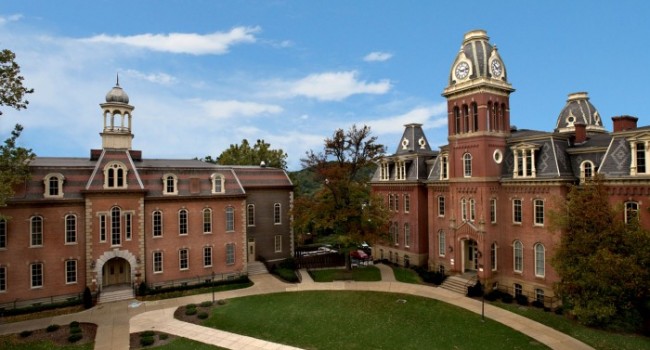WVU Today
The West Virginia University Board of Governors received reports Wednesday about the positive national attention surrounding the success of COVID-19 vaccination efforts across the state and supported by WVU.
“I am grateful to Gov. Jim Justice for his leadership, as well as Dr. Clay Marsh, West Virginia Coronavirus Czar and our Health Sciences vice president and executive dean,” President Gordon Gee said. “Many WVU Medicine professionals are working hard to support Gov. Justice’s ongoing efforts to vaccinate West Virginians. We all owe them thanks for making us proud — and keeping us healthy.”
Testing and vaccinations
Ted Svehlik, associate vice president of Auxiliary and Business Services, noted lower positive test results among students this spring compared to the fall, as well as a positivity rate well below the state and Monongalia County. WVU has expanded testing and types of testing to include rapid antigen and self-swab options.
The university will continue to receive a limited number of COVID-19 vaccine doses designated for higher education employees. To date, 240 employees have received two doses, and another 830 employees have received the first dose. Additionally, 697 clinically active Health Sciences students working or on rotation in high-risk areas have received a first dose.
However, with the recent launch of the statewide vaccine pre-registration portal and vaccination clinics now established in all 55 counties, WVU soon will begin phasing out the vaccination clinic at the Student Recreation Center.
COVID-19 finances, federal relief
Paula Congelio, vice president of finance and chief financial officer, outlined more than $18.4 million in pandemic-related expenses incurred to date including testing, PPE, transportation, distance learning and teleworking costs, among others. The university has also seen revenue losses in tuition and fees, housing and dining, parking, athletics and other sources totaling $55,389,000.
Last spring, WVU received $20.2 million from the federal CARES Act. The first installment of about $10 million provided emergency assistance to students. The rest was used to cover costs associated with significant changes to the delivery of instruction due to COVID-19.
“The university used these moneys to offset the more than $13.6 million in housing and dining refunds that we have paid to our students,” Congelio said.
In December, Congress passed additional relief totaling about $30 million, which will be used similarly.
The university, Congelio added, has strategically navigated the financial challenges of the pandemic through a variety of measures, including reducing more than $35 million in expenses over initial expected budget, Pausing and re-evaluating capital projects and maximizing reimbursement of expenses and loss of revenues at the state and federal level.
Response and impact to the State
From testing and contact tracing, research and development efforts, public outreach, education and assisting with vaccine distribution, WVU has supported and partnered with local, county and state entities, various agencies, the National Guard and others throughout the pandemic.
Jim Hoyer, who serves on the State’s COVID-19 task force and recently retired as adjutant general of the West Virginia National Guard before transitioning to WVU, shared his perspective on the university’s impact.
“From my 40 years of emergency response in this state, I can tell you West Virginia University has been absolutely pivotal in the state’s success,” Hoyer said.
He continued by saying the ability to operationalize the institution to mobilize its land-grant mission “gave us things that other states didn’t have.” He added, “It has absolutely saved lives.”
The next regular board meeting is scheduled for April 23.




